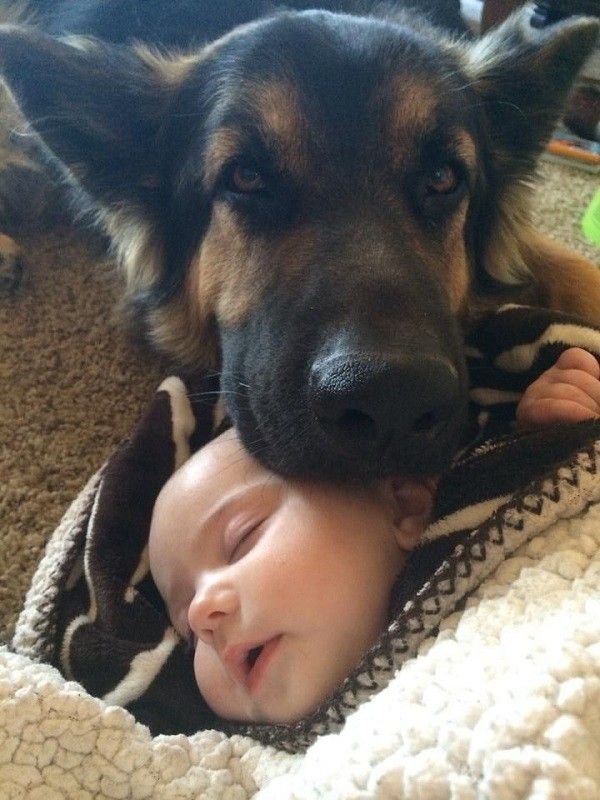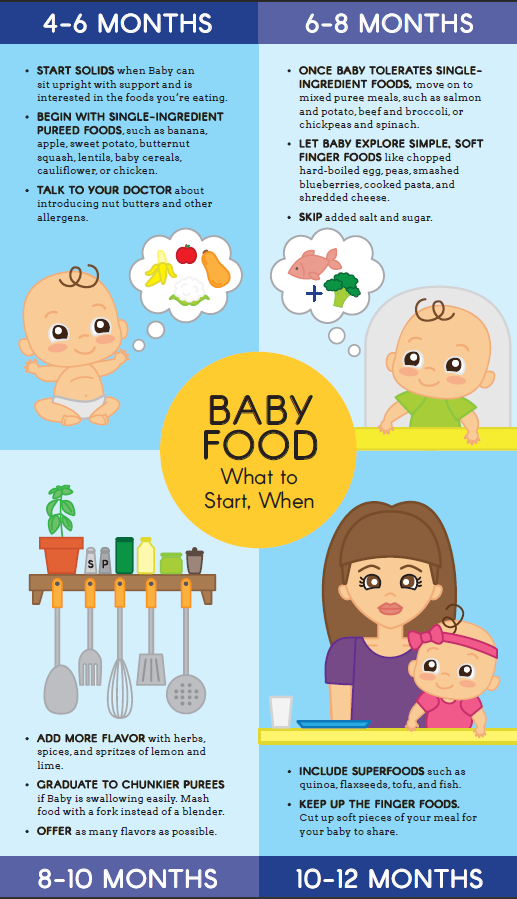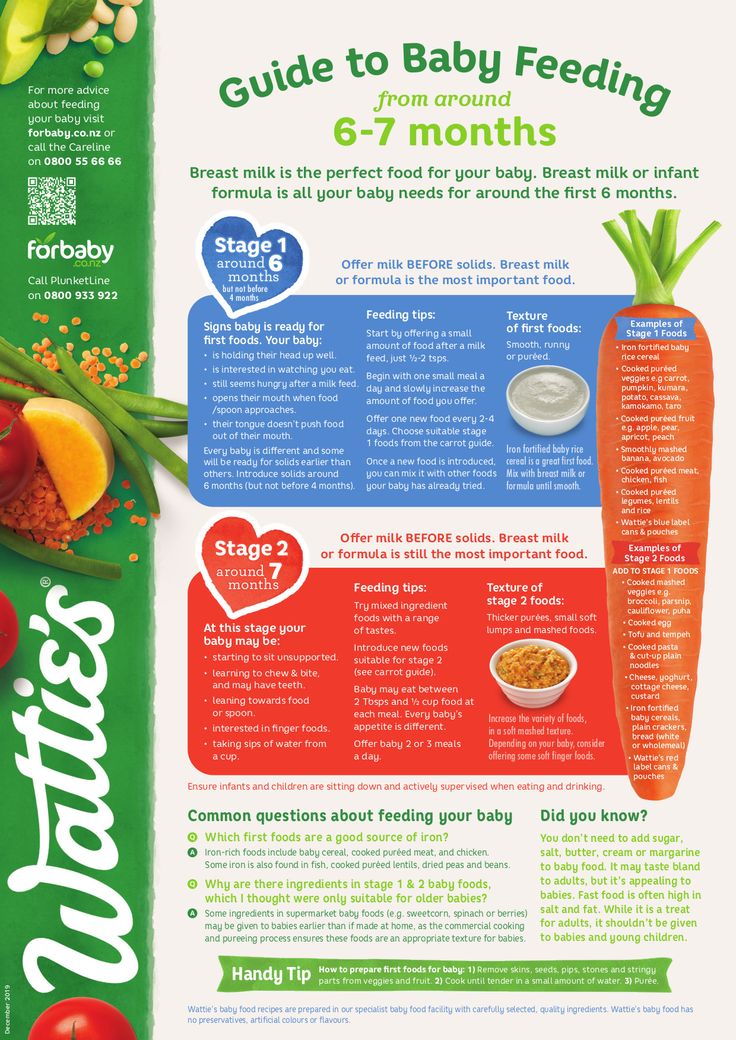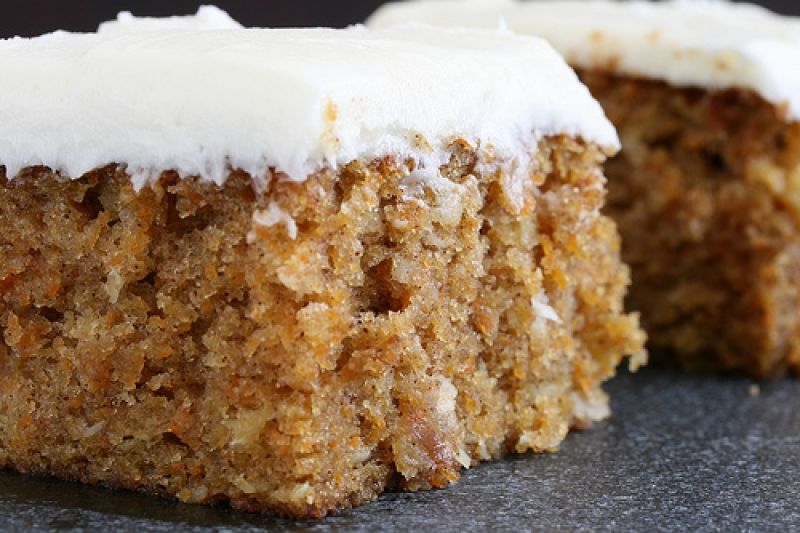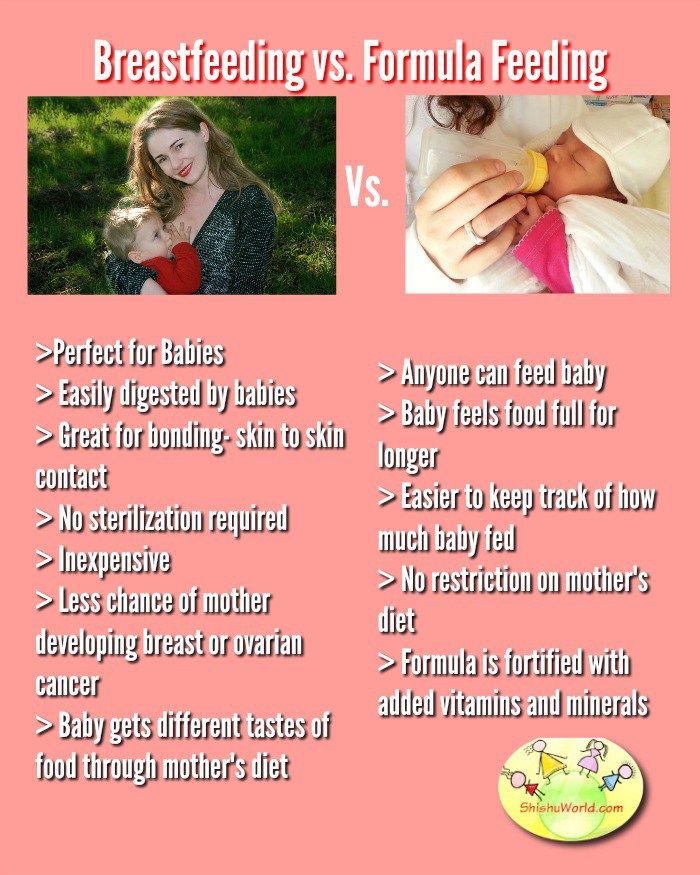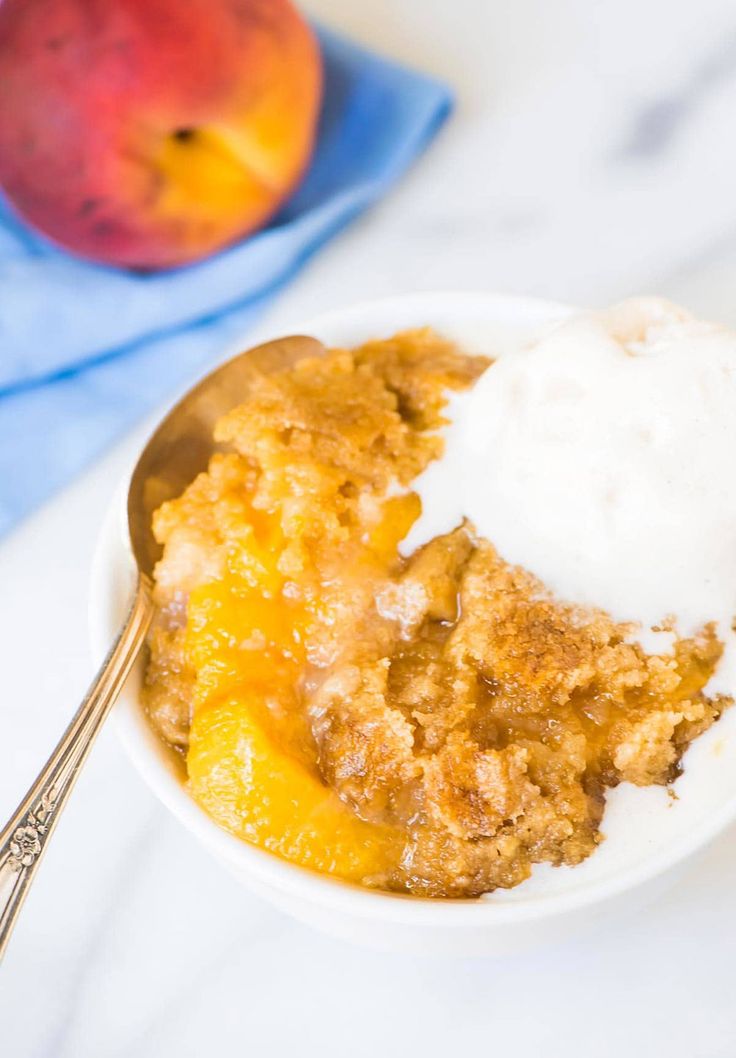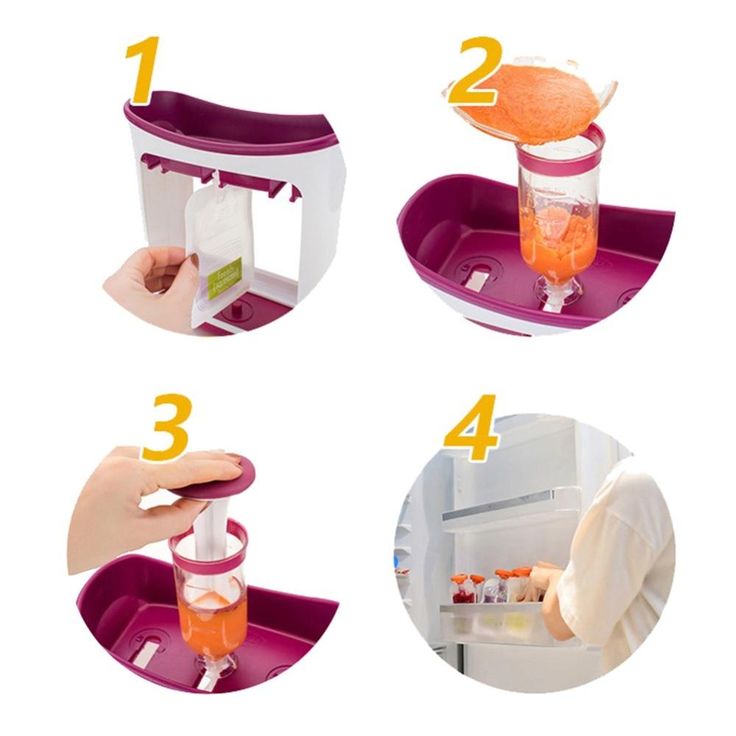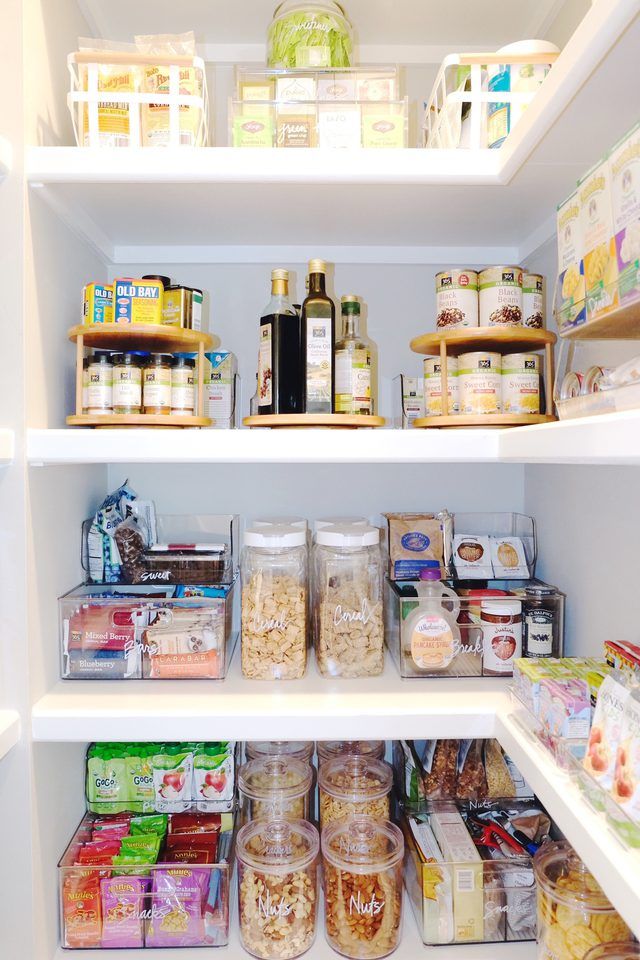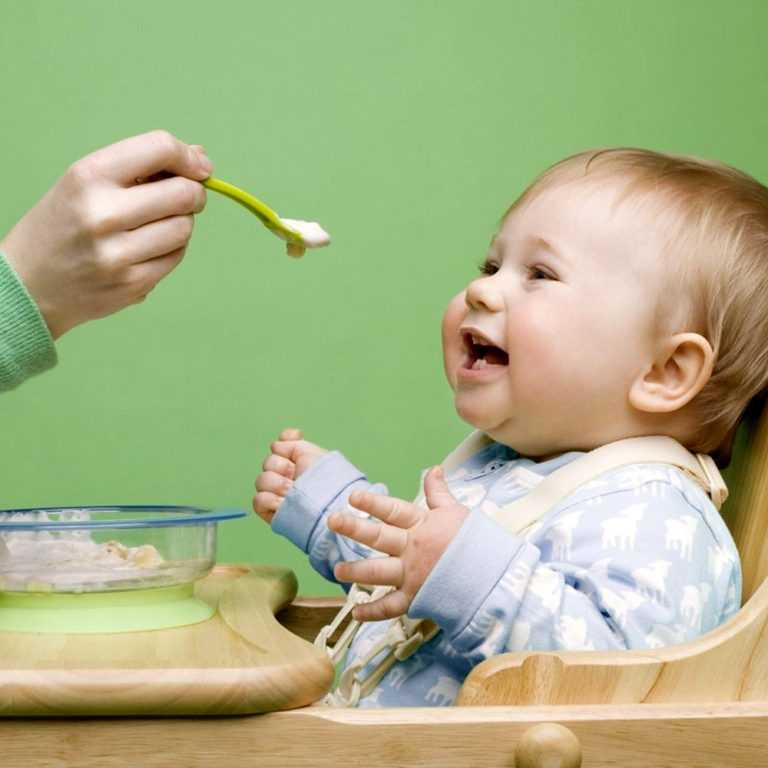What to feed a baby german shepherd
How Much To Feed A German Shepherd Puppy: An Easy To Follow Guide
Do you know how much to feed a German Shepherd puppy for the best growth and health?
Or, maybe you just need a simple feeding chart by age or weight for your new puppy?
Luckily…
By the time you’re done reading this, you’ll learn the right amounts to feed your pup to grow strong and fit and keep you on the right track to a lifetime of health.
Let’s get started and find out how much, how often, and what foods your GSD puppy loves to eat.
German Shepherd Puppy Feeding Guide
Knowing how much to feed a German Shepherd puppy helps you to keep track of their growth and habits. It’s good to chart how much you’re feeding them so that you can monitor their weight gain, growth, and appetite changes.
Follow this chart as a guide for how much food a German Shepherd puppy usually eats.
German Shepherd Puppy Feeding Chart By Age
As a general guideline, here’s how much you should feed your German Shepherd puppy daily by their age and cups of food:
- 8 weeks old: 1 to 1 ½ cups of food spread over 4 meals daily
- 12 weeks old: 1 ½ to 2 cups of food spread over 4 meals daily
- 6 months to 9 months old: 2 cups to 3 cup of food spread over 3 meals daily
- 9 months to 12 months old: 3 cups to 3 ½ cups of food spread over 3 meals daily
- 12 months old and above: 3 ½ to 4 cups of food spread over 2 meals daily
Adjust the amounts based on your dog’s lifestyle. A more active puppy might need extra calories, while a lower energy puppy doesn’t need as much food per day. These are guidelines only.
So, feel free to adjust the amounts based on your German Shepherd’s energy needs.
| Puppy Age | Total Cups of Dry Kibble | Number of Meals Per Day |
|---|---|---|
| 8 weeks old | 1 – 1 ½ cups | 4 |
| 12 weeks old | 1 ½ – 2 cups | 4 |
| 6 months to 9 months old | 2 – 3 cups | 3 |
| 9 months to 12 months old | 3 – 3 ½ cups | 3 |
| 12 months old and above | 3 ½ – 4 cups | 2 |
Offer your dog their food around the same time each day. If they don’t eat their meal in 10 to 15 minutes remove their dish. Wait an hour and offer them the same meal to see if they’ve changed their mind about eating.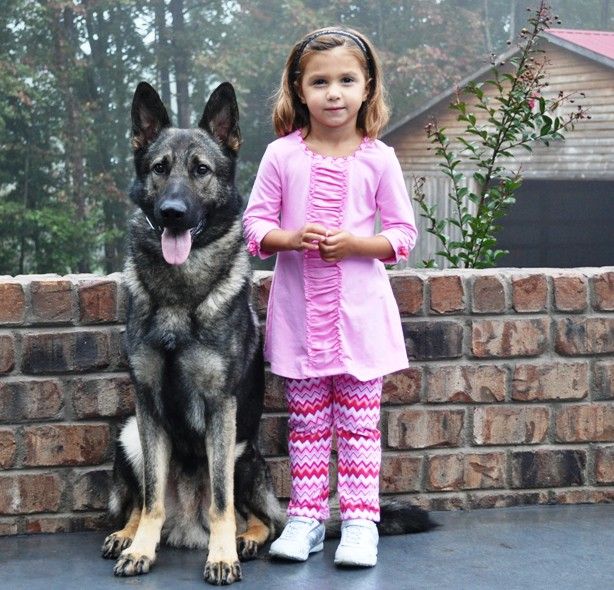
How Much Should A German Shepherd Puppy Eat?
German Shepherd puppies eat more than you think!On average, adult German Shepherds should eat at least 1,272 calories to 2,100 calories daily. This amount depends on their age, existing health conditions, and activity level. Older and less active German Shepherds eat around 1300 calories daily to maintain a healthy weight. Meanwhile, an active and energetic older GSD may eat at 1700 calories a day.
But what about a German Shepherd puppy?
How much should a German Shepherd puppy eat?
The answer will surprise you!
German Shepherd puppies eat twice the amount of calories per pound of weight when compared to adult German Shepherds. This means an 8-week-old German Shepherd puppy can eat double the food of an adult GSD! Puppies eat double their adult counterparts in order to maintain growth and development. Their caloric intake is crucial to keep their bodies strong and give them necessary energy to grow.
A German Shepherd puppy that is younger than four months old will need at least 80-90 calories per pound of body weight in order to grow and develop. Once a German Shepherd puppy reaches four months of age, then you can reduce his calorie requirements to around 40-60 calories per pound of body weight. Weigh your puppy routinely, check on their overall body condition, and adjust their calories to support their growth.
Young Shepherds are even busier than working adult dogs. After all, they’re growing into their large paws, running around with zoomies, chewing (things they should and shouldn’t), playing fetch, and learning allabout the world around them. All of this requires additional energy.
Remember, calories vary greatly between brands and manufacturers. Always read the feeding label and nutritional guidelines on the package of food you are feeding your GSD.
Here is a simple calorie chart by age and weight to help you find a good feeding amount for your puppy to start with.
German Shepherd Puppy Calories By Age
| Puppy Age | Number of Feedings | Average Calories |
|---|---|---|
| Puppies – Weaning to 12- weeks | 4 per day | 1200 – 2400 calories |
| Puppies – 3 to 6-months | 3 per day | 2000 – 2200 calories |
| Puppies – 6 to 12-months | 3 per day | 2700 – 3900 calories |
| Puppies – 12 to 18-months | 2 per day | 3300 – 4250 calories |
Many puppies need additional calories right before a growth spurt, then eat slightly less after the growth spurt. It’s difficult to tell when the growth spurt begins, but you might notice that your puppy always seems hungry.
On average your German Shepherd puppy under 4 months old needs about 80 – 90 calories per pound of their body weight. This figure is adjustable given how active your dog is during their day and as they grow – scientifically, this number is called their resting energy requirements, or RER. The RER is a mathematical formula to calculate the minimum requirements for a German Shepherd puppy’s growth.
But, it’s not set in stone!
So, don’t get stuck on the numbers exactly. Instead, use them as a guide.
More importantly?
Watch your puppy’s body condition and waist line. German Shepherd puppies should have an hourglass figure when seen from overhead. They aren’t bulky or heavily muscular as young puppies.
And bulking up a puppy is not healthy for their joints. Instead, you want them to steadily increase their growth.
If you think your puppy is trying to eat everything, including his food bowl, then offer a small bit more food. If he seems slightly chubby or fat, then decrease the food by a small bit.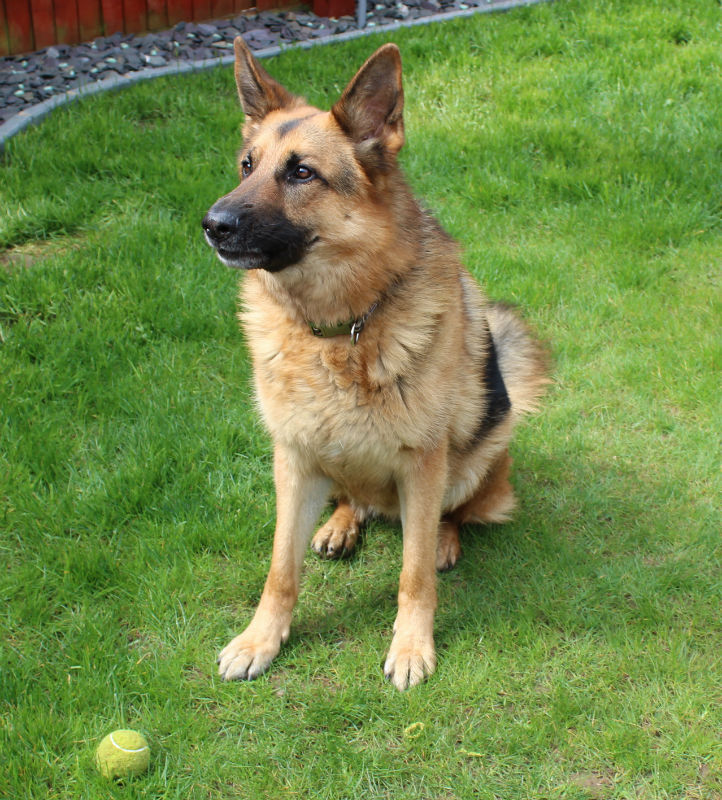
How Much To Feed A German Shepherd Puppy By Weight
German Shepherd Puppy Calorie Chart: 0 – 4 months
| Weight in Pounds | Calories/Day |
|---|---|
| 10 | 600 |
| 20 | 1200 |
| 30 | 1500 |
| 40 | 1800 |
| 50 | 2100 |
| 60 | 2400 |
German Shepherd Puppy Calorie Chart: 4 months – 1 year
| Weight in Pounds | Calories/Day |
|---|---|
| 10 | 400 |
| 20 | 800 |
| 30 | 1000 |
| 40 | 1200 |
| 50 | 1400 |
| 60 | 1600 |
| 70 | 1800 |
| 80 | 2000 |
| 90 | 2200 |
| 100 | 2400 |
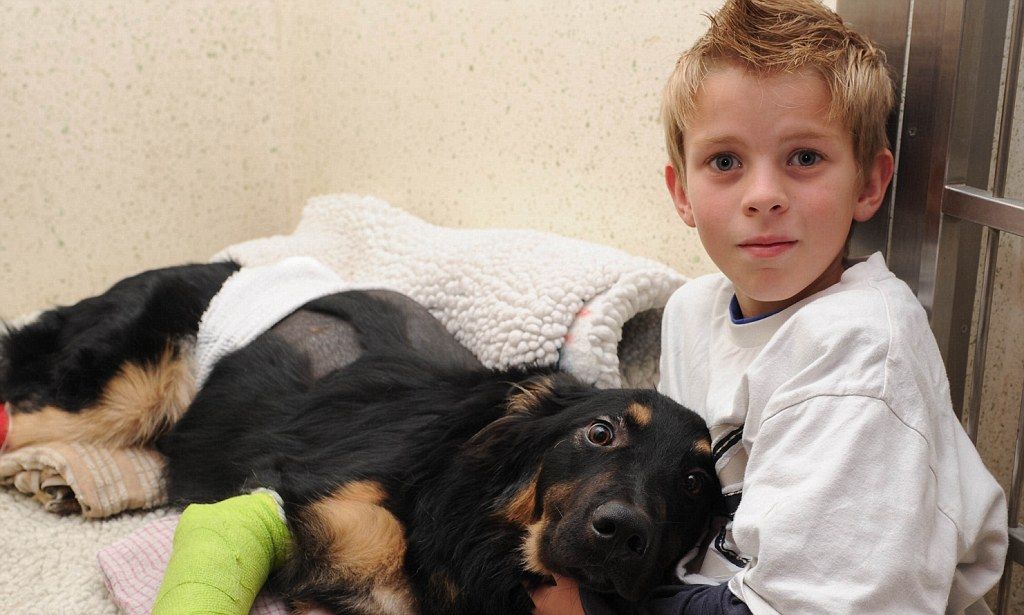
If you look at the feeding recommendations on your dog’s food package, you’ll likely see the amounts to feed a German Shepherd puppy are written in cups rather than calories. Those guidelines are safe to follow because they calculate your puppy’s calorie requirements in the same way the above charts do. Plus, using a measuring cup is easier than figuring out caloric needs using a mathmatical formula.
Now, you need to choose the right number of feedings per day for your German Shepherd puppy.
How Often Should You Feed A German Shepherd Puppy?
| Puppy’s Age | Feedings Per Day | Snacks? |
|---|---|---|
| 6 to 12 weeks old | 4 | Yes, often but healthy treats |
| 12 weeks to 6 months old | 3 | Yes, often but healthy treats |
| 6 months to 1 year old | 2 | Yes, occasionally |
| 1 year and older old | 2 | Yes, limited |

How often you should feed a German Shepherd puppy depends on their age and their activity level. This means:
- A 6 to 12 week-old German Shepherd puppy eats 4 times a day
- A 12-week to 6-month old German Shepherd puppy eats 3 times a day
- A 6-month to 1-year old German Shepherd puppy eats 2 times a day
- At 1-year and older you can keep feeding your German Shepherd puppy twice a day
Feeding smaller meals throughout the day also supports your puppy’s blood sugar and energy level which helps them grow steadily and behave better in your home.
When you know how many times to feed a German Shepherd puppy per day it’s easy to see the need for a regular feeding schedule to keep track of his meals!
Many owners also want to know when they can switch to adult food formulas for their German Shepherd puppies. So, let’s take a look at the answer.
When Should You Switch Your German Shepherd Puppy To Adult Food?
Switch your GSD puppy to adult food when they are around 12 to 18 months old.
Puppies can begin adult kibble when they are approximately 80 percent of their adult weight. This usually occurs around 8 to 10 months of age, but you can safely feed puppy food up to 18 months old as long as they are not putting on excess weight too quickly. German Shepherds usually don’t reach their full growth until 18 months of age and tend to fill out later than smaller breed dogs.
It isn’t harmful to keep a German Shepherd on puppy formula until their growth plates have fused over, which is generally around 12 to 18 months of age (UCLA – Davis).
If you want to know what to feed a German Shepherd puppy, keep reading.
What Do You Feed A German Shepherd Puppy?
Finding the best food to feed your German Shepherd puppy is overwhelming at times.Your German Shepherd’s athletic body, as well as his energy, health, and condition, depend in part on what you choose to pour into his bowl and knowing how much to feed your German Shepherd puppy.
This means choosing what to feed a German Shepherd puppy is even more serious and intimidating!
Most dog foods on the market will adequately sustain your dog’s life.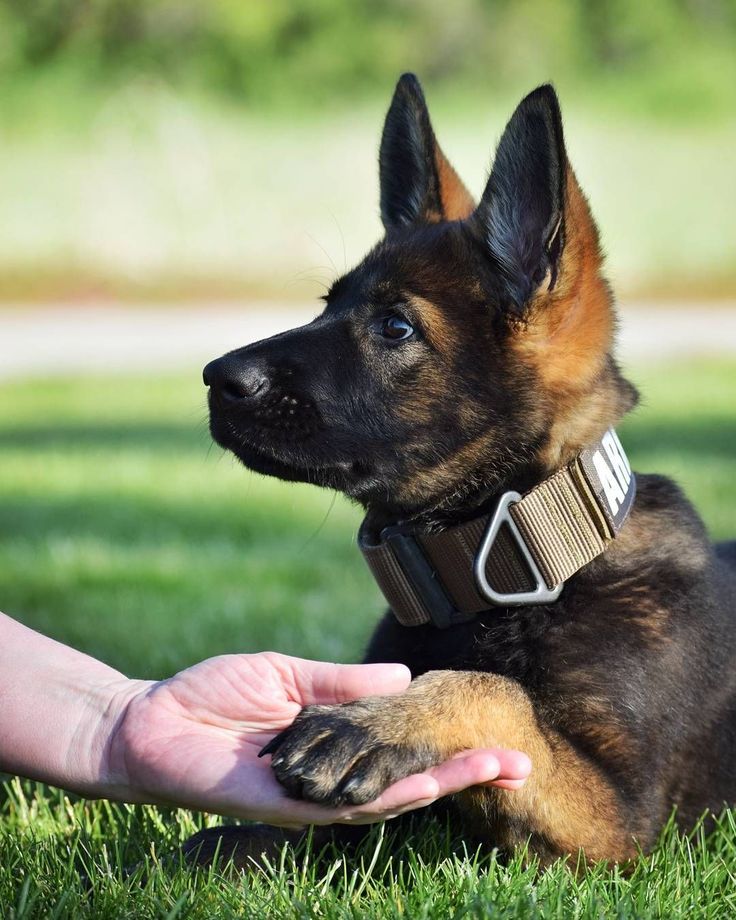
But you don’t want adequate…
You want your dog to bloom with health!
Feed a German Shepherd puppy a dry kibble from a major, research-based and vet-backed dog food manufacturer. Dry kibble is the most convenient, economical choice for most puppies. Look for a food created especially for large breed puppies that states the formula is a complete and balanced meal.
The Best German Shepherd Puppy Food for Healthy Growth and Weight Gain
Look for the following brands of food for your GSD.The following dog foods are all recommended for large breed puppies and meet and exceed regulated nutritional standards. Feeding a high-quality kibble from a name-brand company that uses feeding trials ensures the best quality and nutrition.
Here are some of the best German Shepherd puppy foods that are research-backed.
- Royal Canin Large Breed Puppy Formula – Great for Picky Eaters! Packed with nutrients to help limit inflammation of the joints and uses fresh ingredients.

- Purina Pro Plan Large Breed Puppy Formula – Perfect for Sensitive Stomachs! Easily digestible formula for puppies prone to allergies and sensitive stomachs.
- Hill’s Science Diet Large Breed Puppy- Terrific for Coat and Skin Health! Rich aroma with DHA fish oil to entice puppies to finish every last bite while giving shine to their coats.
The better the food, the healthier your pup will be inside and out. Don’t feed your German Shepherd puppy the cheapest food you can buy. Cheaper GSD puppy food lacks quality proteins that are essential for your working breed dog.
These premium foods cost more initially, but because they’re calorie and nutrient dense they feed your puppy for longer than cheaper foods. They can also help your German Shepherd puppy gain weight in a healthy way, so they don’t bulk-up too quickly.
Adding too much weight to your German Shepherd too soon can cause lifelong joint issues that are painful to your pet and expensive on your wallet.
Name Brand Puppy Food Versus Boutique Formulas
Don’t buy boutique formulas, as these companies don’t always quality check or feed test their formulas, and many have been found linked to causing deadly heart conditions in dogs.
Don’t believe me?
You can read for yourself the American Kennel Club’s statement on the matter (AKC.org).
The brands recommended meet the World Small Animal Veterinary Association (WSAVA) criteria and have no reported cases of DCM. Purina and Hill’s all have boarded Diplomates of ACVN on staff and Ph.D. Animal Scientists and Nutritionists work to ensure quality control and exceed nutritional standards (WSAVA.org).
Most GSDs are healthy and fit on commercial dog foods that are high quality.
These balanced formulas keep their bones and muscles strong throughout their growing periods and can ward off later joint issues, a common breed problem, as they mature. There is a greater demand for quality nutrition during the early growth stage. For these reasons, you must feed high-quality food.
For these reasons, you must feed high-quality food.
They’ll eat eagerly and have a shiny coat and bright eyes with a scientifically based commercial diet that meets their needs.
Now, consider what to feed a German Shepherd puppy based on their age.
Week-By-Week German Shepherd Puppy Feeding Guide
Follow a feeding schedule based on your dog’s age.These feeding charts and guides will help keep your new companion growing strong and athletic. Find your puppy’s age and follow the guidelines to help them grow athletic and strong.
6-Week-Old Puppy
Your pup should be with its mother nursing during this stage.
Tiny portions of canned, wet foods are introduced. But they still derive the bulk of the nutrients from their mother’s milk. The mother’s milk contains colostrum, antibiotic milk that protects the young pup during the first 8 to 10-weeks of their lives.
Meals per day: 4 or more (Puppies should stay with their mom for to keep them healthy. )
)
8-Week-Old Puppy
At 8-weeks-old, your GSD pup should be fed hard kibble moistened with warm goat’s milk left to sit for 10 minutes. This goat’s milk is highly digestible and provides your growing GSD pup with plenty of healthy vitamins and minerals that are essential to their bodies during this critical stage of their lives.
Do not use cow’s milk as this will cause stomach upset and sickness!
Goat’s milk can be used throughout their lives, even as adults, to make their meals more enticing and encourage healthy eating habits.
At 8-weeks-old a GSD pup is eating more solid foods and develops a better appetite for kibble and other foods. Add in only a couple of small spoonfuls of canned plain pumpkin, unsweetened Greek yogurt, or cooked oatmeal to entice your pup to eat.
As you’ve most likely started to train your German Shepherd puppy, they’ll need energy to keep up with the new skills they’re learning so they stay sharp and alert.
Meals per day: 4
10-Week-Old Puppy
Continue feeding the same as the 8-week-old diet. Don’t change kibble brands if you find one your dog eats, enjoys, and shows positive, healthy results.
Don’t change your dog’s diet as long as they are enjoying their food, have plenty of energy for daily activities, and a beautiful, full, shiny coat.
Treats are not only enjoyable for your German Shepherd, but help you to eneterain and build a positive relationship with him. Just watch the calories and weight gain to ensure treats aren’t overdone.
You’re most likely noticing your puppy is a non-stop motion blur around your house! Be sure to keep their zoomies under control by playing plenty of fun German Shepherd games for puppies.
Meals per day: 4
12-Week-Old Puppy
Continue to feed the kibble. You can still offer goat’s milk as long as they enjoy it.
Watch for excessive weight gain during this growth time as their bones cannot take extra weight!
Too much weight gain too quickly can cause joint issues as an adult and prevent healthy development.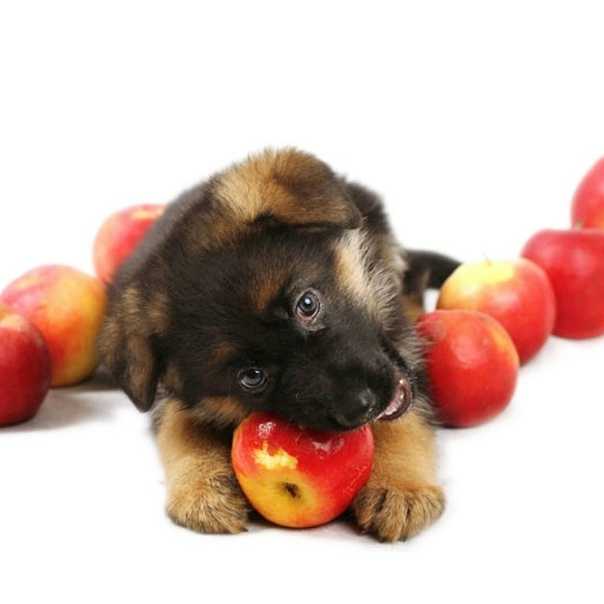 If your high-energy German Shepherd still seems like they can’t rest or calm down, then try a different training technique.
If your high-energy German Shepherd still seems like they can’t rest or calm down, then try a different training technique.
Use their mental energy to help keep them more relaxed throughout the day by playing brain-boosting mind games for German Shepherd puppies. You’ll not only love the games to bond with your new puppy, but your dog will love learning how to put their brilliant minds to great use!
Meals per day: 3 to 4
14-Week-Old Puppy
Keep your puppy trim and athletic by monitoring how much you feed your puppy and their body condition. You can write how much they eat and track this over time, and adjust how much your feed your German Shepherd puppy to keep them at a healthy weight.
Try using fresh, raw, cut-up pieces of carrots as healthy treats or small, deseeded cubes of fresh apple as part of their training treats.
Keep your eyes open for a growth spurt about to begin! They’ll gulp down their meals and you might even wonder if they’ll ever stop eating.
Meals per day: 3
16-Week-Old Puppy
Around this time, you might notice your puppy finish their meal quickly and look for more food. It’s OK to start giving them a small handful more of kibble since they’re most likely going through a growth spurt.
Be sure to watch how many treats you give them throughout the day. Many puppy treats are high in calories so monitor these additions to your dog’s feeding routine.
If you haven’t yet taught your dog leash manners, then don’t delay in training your German Shepherd puppy to walk nicely on leash. They’ll soon have the strength to pull you down the road with their power!
Meals per day: 3
18-Week-Old Puppy
As your puppy keeps growing it’s a good idea to weigh them on a scale. You can do this by holding them safely in your arms and weighing them with you on the scale. Then, place them on the floor and step onto the scale without them to weigh yourself.
Subtract the difference between the weights and you’ve got your puppy’s weight.
Remember, around 16 to 20-weeks old your German Shepherd puppy begins to rapidly grow. This means it’s essential to not overfeed them because extra weight can cause damage to their joints and bones.
Meals per day: 3
20-Week-Old Puppy
Around 5-months old you might notice your puppy’s height increase, along with their bodies starting to plump up and fill out. While it’s healthy for a German Shepherd puppy to begin filling out around this time, they shouldn’t have a round belly.
Instead, when looking overhead at your puppy their waist should look trim and not rounded outwards. German Shepherd puppies should appear sleek in their waistline.
Meals per day: 3
22-Week And Older Puppy
Continue to feed your German Shepherd puppy dry kibble with a small amount of healthy foods mixed in. You can lessen the healthy food you mix in gradually if you prefer. But, even as adults, German Shepherds love a bit of tasty toppers on their kibble.
Around a year old, begin feeding your German Shepherd puppy 2 meals a day.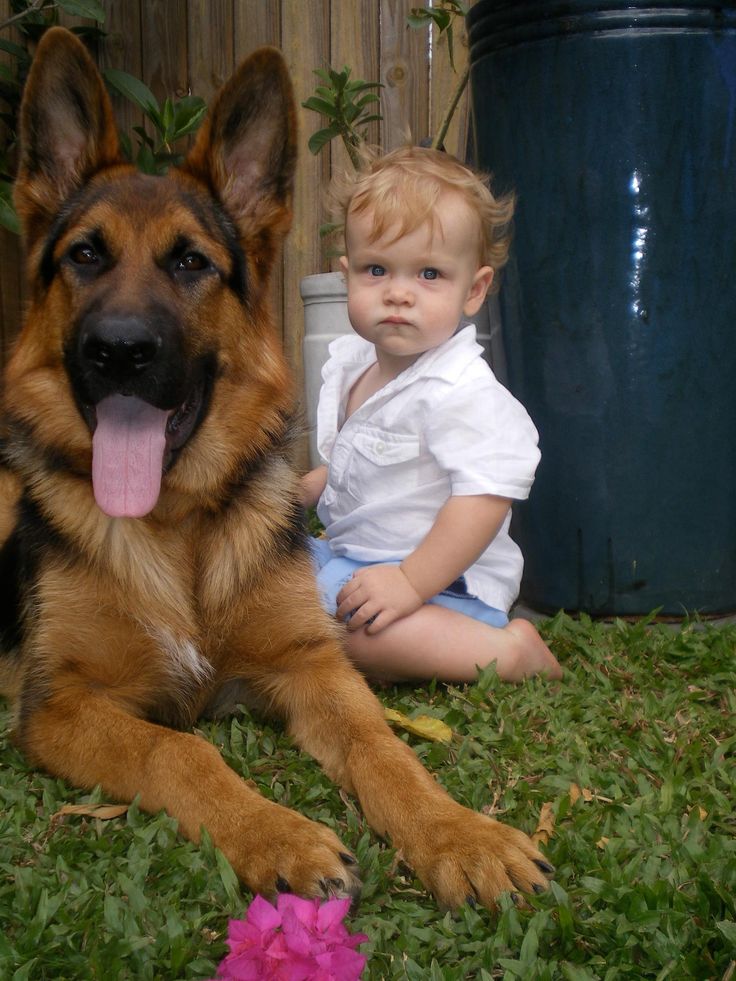 Don’t ever feed your German Shepherd only 1 large meal a day as this could cause bloat, a deadly medical issue in their stomachs.
Don’t ever feed your German Shepherd only 1 large meal a day as this could cause bloat, a deadly medical issue in their stomachs.
Two meals, one in the morning and evening, are not only safer but also provide your German Shepherd with sustained energy to fuel their high-energy lifestyle.
Create A Positive Meal Time Experience
Set up a feeding routine for your German Shepherd puppy so they learn meal manners.If you have a new puppy that you’ve just brought home they might feel scared, anxious, or stressed. You can create a positive meal time by using the following tips:
- Always offer fresh water during their meal times.
- Keep the area where they eat their food in calm and out of the way of the family hustle and bustle.
- Don’t pester them while they eat, reach into their food bowl to remove food, or try to play with them.
I found sitting with a book reading, just keeping my GSD puppy company, encouraged my dog to eat their meals while giving us time to quietly bond. If your new German Shepherd puppy still isn’t eating, try feeding them by hand.
If your new German Shepherd puppy still isn’t eating, try feeding them by hand.
What’s The Best Time To Feed A German Shepherd?
Feed your German Shepherd at the same time everyday.The best time to feed a German Shepherd puppy is in the morning, before you leave for the day, and in the evening, about 2 hours before you put your dog to bed. Allow them to potty after eating to ensure their comfort. Your dog also needs to eat at other times of the day for their health and growth. If it’s easier for your schedule you can feed 3 smaller meals around the same time that you eat at breakfast, lunch, and dinnertime.
German Shepherd puppies who are on 4 daily feedings are best fed:
- In the mornings
- Around noon (mid-day)
- The afternoon (when you return home from school or work and after they go potty)
- In the evening for their last meal
If you’re feeding your dog 3 times a day, the best times are:
- In the morning before you leave for the day
- Around noon (or early afternoon)
- In the evening
German Shepherd puppies 12 months and older are best fed twice a day:
- In the morning before you leave home
- In the evening, before their last walk of the day
Each family will have different schedules, so adjust your feeding times accordingly. Aim for equally spaced out meals at the same time each day so your German Shepherd’s routine stays regular.
Aim for equally spaced out meals at the same time each day so your German Shepherd’s routine stays regular.
German Shepherd Puppy Feeding Amount
So many choices for feeding your puppy!How much you should feed a German Shepherd puppy really depends on a number of factors. Your GSD pup should eat enough to maintain their growth and energy, while not carrying any extra fat.
Consider the following factors for how much to feed German Shepherd puppies:
- Activity – the daily energy expenditure of your pup
- Age – puppies tend to need more food and calories than senior dogs
- Health – any medical conditions that might affect not only the type of food, but the amount
Here’s a brief look at how much to feed a German Shepherd puppy based on their lifestyle.
What Affects How Much Your German Shepherd Should Eat?
Activity level, age, and your dog’s health affects how much they eat.You might find your German Shepherd puppy eats more or less than what’s listed in these feeding charts. That’s totally normal. Every dog is different.
That’s totally normal. Every dog is different.
Keep in mind the number of calories in the kibble, which varies from manufacturer to manufacturer. Each puppy food company has a different amount of calories and size of the kibble.
Here are a few things that might affect how much your German Shepherd puppy should eat.
Activity
Your German Shepherd’s food intake depends on his activity level during the day. The more active a German Shepherd puppy is, the more calories he needs to eat to replace lost energy.
Age
Your German Shepherd’s food intake is also affected by their age. For example, puppies need nearly twice the amount of calories as compared to adults.
And older or senior German Shepherds who are less active need less food.
Health
Maintaining a healthy weight is essential to feeding your German Shepherd.
Keeping a slim waist and athletic body helps ensure your German Shepherd’s health. Simply put, you can prevent some medical conditions and health problems by monitoring their waistlines.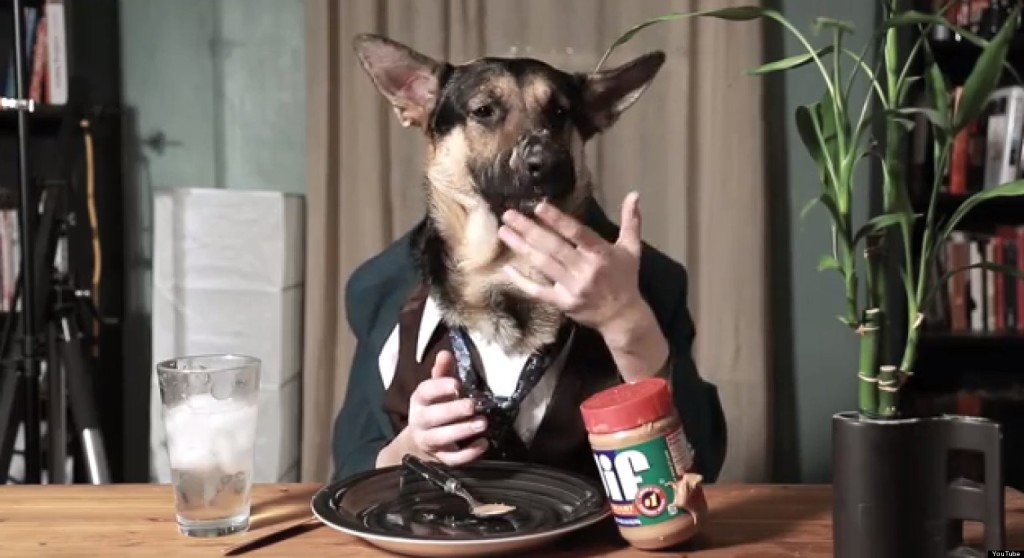
Don’t make the mistake of simply giving your underweight German Shepherd more food to make him bigger. Instead follow the healthy way to bulk up a German Shepherd.
To see if your German Shepherd is at the right weight you can find the average weight depending on their age.
Average Weight By Age For Male German Shepherds
| Age | Weight (lbs) | Weight (kg) |
|---|---|---|
| 1 Month | 5.5 – 9 lbs | 2.5 – 4 kg |
| 2 Months | 16 – 20 lbs | 6 – 9 kg |
| 3 Months | 22 – 30 lbs | 10 – 14 kg |
| 4 Months | 35 – 40 lbs | 16 – 18 kg |
| 5 Months | 40 – 49 lbs | 18 – 22 kg |
| 6 Months | 49 – 57 lbs | 22 – 26 kg |
| 7 Months | 57 – 62 lbs | 26 – 28 kg |
| 8 Months | 62 – 66 lbs | 28 – 30 kg |
| 9 Months | 64 – 71 lbs | 29 – 32 kg |
| 10 Months | 66 – 73 lbs | 30 – 33 kg |
| 11 Months | 66 – 75 lbs | 30 – 34 kg |
| 1 Year | 71 – 75 lbs | 32 – 34 kg |
| 2 Years | 71 – 84 lbs | 32 – 38 kg |
| 3 Years | 79 – 88 lbs | 36 – 40 kg |
Average Weight By Age For Female German Shepherds
| Age | Weight (lbs) | Weight (kg) |
|---|---|---|
| 1 Month | 4.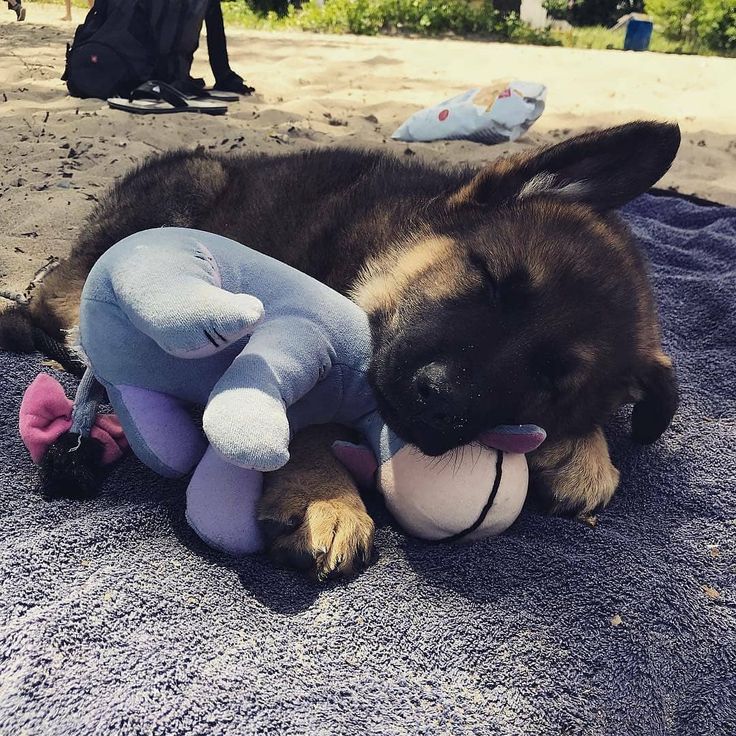 5 – 8 lbs 5 – 8 lbs | 2 – 3.5 kg |
| 2 Months | 11 – 17 lbs | 5 – 7.5 kg |
| 3 Months | 17 – 26 lbs | 8 – 12 kg |
| 4 Months | 31 – 35 lbs | 14 – 16 kg |
| 5 Months | 35 – 44 lbs | 16 – 20 kg |
| 6 Months | 44 – 49 lbs | 20 – 22 kg |
| 7 Months | 49 – 53 lbs | 22 – 24 kg |
| 8 Months | 53 – 57 lbs | 24 – 26 kg |
| 9 Months | 55 – 60 lbs | 25 – 27 kg |
| 10 Months | 57 – 62 lbs | 26 – 28 kg |
| 11 Months | 60 – 64 lbs | 27 – 29 kg |
| 1 Year | 60 – 64 lbs | 27 – 29 kg |
| 2 Years | 62 – 66 lbs | 28 – 30 kg |
| 3 Years | 66 – 70 lbs | 28 – 32 kg |
If your German Shepherd isn’t within these numbers don’t panic. These numbers are averages. Therefore, a German Shepherd can be smaller or larger than listed and still be perfectly healthy and happy.
These numbers are averages. Therefore, a German Shepherd can be smaller or larger than listed and still be perfectly healthy and happy.
Feeding Treats To A German Shepherd
You can include small portions of fresh components to your puppy’s dry kibble for taste and flavor. But don’t add more than a spoonful or two so your dog doesn’t eat only the fresh ingredients and ignore the healthy kibble!
These components shouldn’t make up over 10% of their daily calories to avoid them gaining excess weight.
GSD puppies enjoy eating:
- cooked and raw carrot pieces
- small dollops of unsweetened Greek yogurt
- scrambled and cooked eggs
- canned pumpkin, without spices
- cooked, plain oatmeal without sweeteners
- fresh or frozen blueberries
- goat’s milk (it’s easier on GSDs sensitive digestion than cow’s milk)
If you want to know the best treats for German Shepherd puppies, pick one from this list of healthy German Shepherd treats that are tasty and nutritious.
Give your dog the time to digest its food after he’s had a meal. Never let your pup play hard (running, fetching, jumping) right after you feed them.
Wait 2 hours before and after feeding your dog its meal before heaving exercise or playing hard with them to avoid any gastric problems. A light, slow walk is fine after eating if it’s not long and your puppy doesn’t run.
Be sure to use these best exercises for a growing German Shepherd puppy to avoid injury and teach your dog valuable coordination and balance skills.
These gentle exercises keep your puppy’s joints healthy and help them learn confidence skills while getting to bond with their favorite person…
YOU! 💗
Feeding Your German Shepherd Puppy The Right WayKnowing how much to feed a German Shepherd puppy requires a bit of math and understanding your puppy’s energy levels.
Simply dumping kibble into your dog’s bowl doesn’t mean your job is done.
You still need to keep close watch over your dog’s response to the food by:
- Watching their weight gain or loss closely
- Monitoring their body condition for optimal health
- Understanding how much to feed a German Shepherd puppy to maintain steady growth
Follow the German Shepherd feeding charts to keep your pup healthy and to know the right amount to feed your puppy. It’s essential you understand how to not overfeed your dog to avoid joint damage and lifelong problems.
A healthy German Shepherd puppy will give you lots of fun to enjoy, while you help him have a great start to adulthood.
Now, guess what’s next on your agenda?
Sounds like you’re ready to start training your German Shepherd puppy to keep them entertained and out of trouble.
Don’t let all that puppy energy go to waste…
Use that spark to train them!
12 Best Food for German Shepherd Puppies [2022 – Review]
Adopting a German Shepherd puppy is like having an adorable teddy bear that will hug and cuddle you every hour upon the hour. But, German Shepherd puppies experience rapid growth spurts in their life. And, it falls on you to get the very best food for German Shepherd puppies to ensure a healthy life for your puppy.
But, German Shepherd puppies experience rapid growth spurts in their life. And, it falls on you to get the very best food for German Shepherd puppies to ensure a healthy life for your puppy.
New pet parents find it mind-boggling to walk into a store and choose GSD puppy food. A delectable meal for their best friend that provides all the nutritional needs of German Shepherd puppies. So, they may feel lost. But If you stick with us, you’ll find many essential details about your pup’s dietary needs. And learn about the best brands available in the market for German Shepherds. So, without further ado, let’s get started.
12 Best Dog Food for German Shepherd Puppies
Speaking of vital elements that must be present in dog food, here’s a list of the best German Shepherd puppy food. Not only do these brands pay particular heed to the necessary nutrients for your furry friend. They guarantee an energetic and fit German Shepherd puppy by adding in other minerals for the well-being of your dog.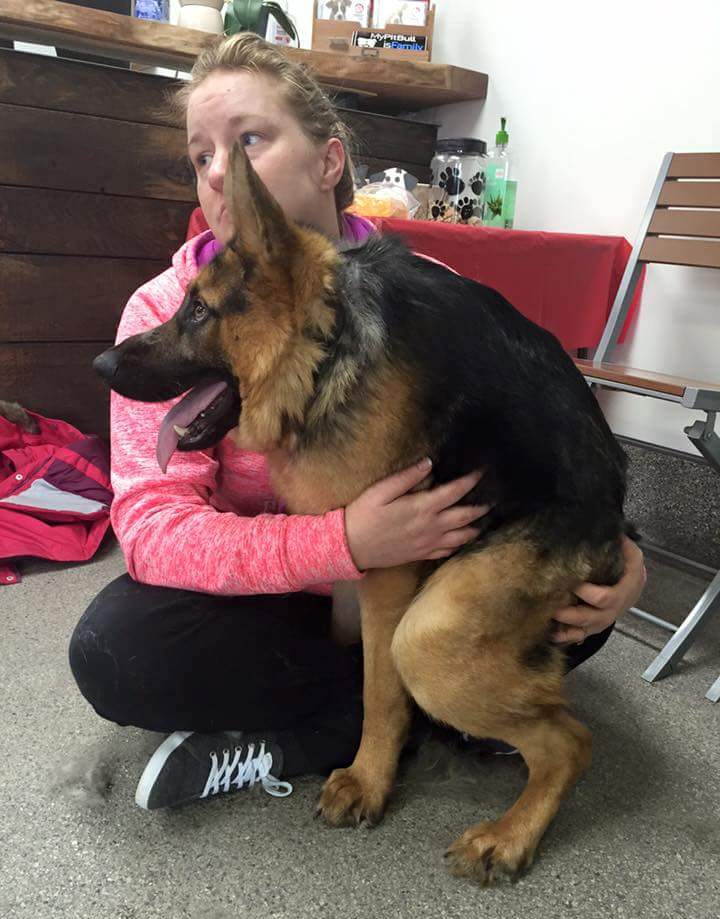
1. Diamond Naturals Premium Large Breed Formulas
Diamond Naturals Dry Food for Puppy, Large Breed Lamb and Rice Formula, 40 Pound Bag
Here’s a power-packed meal to provide antioxidants, probiotics, essential vitamins, and added minerals. The superfoods in the meal promote a long and hearty life for your fluffball. Diamond Naturals formula is specifically for large breed puppies. They need more nourishment to sustain their bone development.
GSDs tend to suffer from elbow and hip dysplasia. So, it is imperative to fortify their immune systems as well as ossein buildout. That will make sure that your pooch does not suffer from joint pains in their adult life.
Furthermore, the antioxidants in the blend prevent cancer. The probiotics in the mix keep the gut flora flourishing, and the omega fatty acids keep the skin, coat, and vision healthy. Diamond tops it all up with a great price tag to give you the ultimate value for your money.
Pros
- Rich in antioxidants to boost immunity
- Contains probiotics for a healthier gut
- Rich in essential vitamins and minerals
- Prevents hip dysplasia
Cons
- Some bags contain too many crumbs
- Not very tasty for some dogs
2. Blue Buffalo Wilderness High Protein Grain Free Natural Puppy Large Breed Dry Dog Food
Sale
Blue Buffalo Wilderness High Protein, Natural Puppy Dry Dog Food, Chicken 24-lb
No doubt, giving your pup what it loves brings you joy. But, it is your job to check that you are also providing your fluffball with the essential nutrients it needs to grow into a beautiful and fit canine.
Blue Buffalo contains clinically proven DHA levels for optimal brain development and the right fat and carbohydrate levels to certify muscle and bone growth. And, fiber and prebiotics warrant smooth digestion.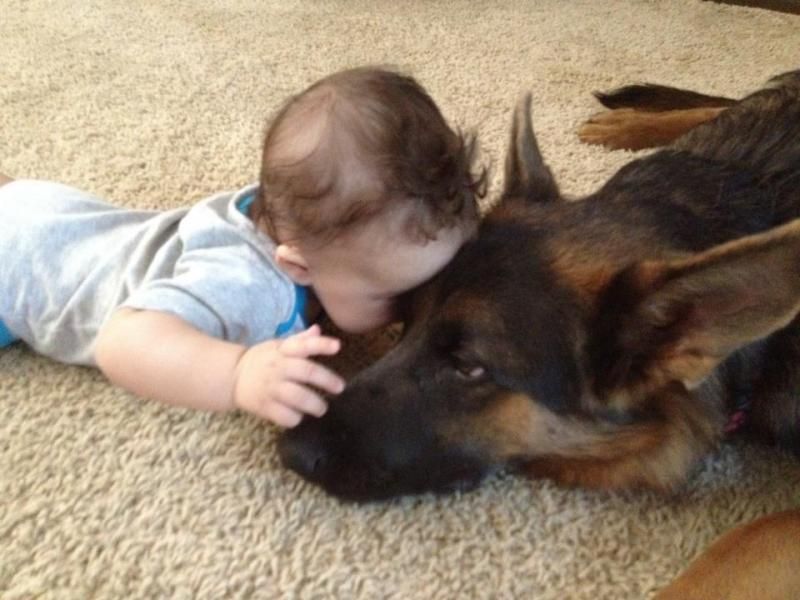 All in all, your puppy will become a gorgeous and healthy beast with Blue Buffalo Wilderness.
All in all, your puppy will become a gorgeous and healthy beast with Blue Buffalo Wilderness.
And, even if your GSD puppy has a sensitive stomach, you need not worry. The grain-less formula is the ideal food for german shepherd puppies with allergies.
Pros
- Contains essential nutrients
- Has DHA for optimal cognitive development
- Has high levels of prebiotic fibers for a healthier gut
- Ideal for GSDs with sensitive stomachs
Cons
- It is a little pricey
- Some GSDs don’t like the taste
3. Eukanuba Puppy Dry Dog Food Chicken
Eukanuba Puppy Large Breed Dry Dog Food, 33 lb
Eukanuba cares for both your pocket and your pup’s well-being. So, you get three different packaging options for your puppy. Its main ingredient is high-quality chicken that your puppy will devour. While the formula is enhanced with targeted levels of calcium and phosphorus. You see, German Shepherds need calcium. But, too much can harm them.
You see, German Shepherds need calcium. But, too much can harm them.
But, Eukanuba has been in this business for over fifty years. And, they only provide products par excellence. So, if you are looking for choices in the market, Eukanuba is a sensible addition to your dog’s diet.
Pros
- Made from high-quality chicken
- Contains enough levels of calcium and phosphorus
- Supports muscle growth
Cons
- It is pricey
- Can cause diarrhea in some dogs
4. Purina ONE SmartBlend Natural Puppy Dog Food
Purina ONE Natural, High Protein, Large Breed Dry Puppy Food, +Plus Large Breed Formula - 31.1 lb. Bag
Crafted with love and care, Purina ONE SmartBlend is an epic meal for your dog. The yummy chicken flavor satisfies your pooch’s taste buds, and the nutrient-rich formula will keep you happy, too. Purina believes that your canine deserves only the best. So, they give you dry dog food for large breed puppies that is free from preservatives. There are no artificial colors, fillers, or flavors. Purina simply does not do meal fillers.
So, they give you dry dog food for large breed puppies that is free from preservatives. There are no artificial colors, fillers, or flavors. Purina simply does not do meal fillers.
Vets across the globe recommend Purina, and they are so sure of their high quality that Purina offers you to take the 28-day Challenge. If you don’t see a visible improvement in your dog’s coat, skin, energy levels, and well-being, they are satisfied to give you your money back.
Pros
- Free from artificial flavors and colors
- No fillers
- Promotes healthy skin and coat
Cons
- Can cause bad breath
- Some dogs experienced vomiting
5. Royal Canin German Shepherd Puppy Breed Specific Dry Dog Food
Royal Canin Breed Health Nutrition German Shepherd Puppy Dry Dog Food, 30 lb
Nothing beats Royal Canin German Shepherd puppy food, as you will find from the raving reviews from satisfied pet parents of GSDs. It is a formula specifically made for a German Shepherd. And, they know their German Shepherds. So, they have taken into account the smallest of considerations.
It is a formula specifically made for a German Shepherd. And, they know their German Shepherds. So, they have taken into account the smallest of considerations.
The unique kibble shape is easy to grip with the long and robust muzzle of your German Shepherd. The glucosamine and chondroitin make for smooth digestion. Vitamin E is excellent for your puppy’s muscle development, healthy heart, and liver. Plus, the antioxidants keep the immune system up and running. In short, Royal Canin ranks as a topper in the list of the best diet for German Shepherd puppies.
Pros
- Has easy-to-eat kibbles
- Rich in vitamins E for healthier liver, heart, and muscle development
- Boosts immunity
Cons
- Can cause runny stools in some dogs
- Some boxes arrived with damage
6. Taste of the Wild High Prairie Canine Grain-Free Recipe
Taste of the Wild High Prairie Canine Grain-Free Recipe with Roasted Bison and Venison Dry Dog Food for Puppies, Made with High Protein from Real Meat and Guaranteed Nutrients and Probiotics 28lb
If you want your puppy delighted with its meal and for him to grow into a big boy, then Taste Of The Wild High Prairie is the healthiest pick of the day. It’s a superior quality formula that is suitable for German Shepherd with delicate tummies.
It’s a superior quality formula that is suitable for German Shepherd with delicate tummies.
The blend contains no grain, so there is no question of gluten-related problems. There are no fillers in the meal. And, it has only 100% natural ingredients to guarantee the absolute healthful development of your puppy. Even the smaller-sized kibble is to make chewing and digestion easier for your little fluff ball.
Pros
- Suitable for GSDs with sensitive stomachs
- Made with 100% natural ingredients
- Free from grains and gluten
Cons
- Can cause allergic reactions in some dogs
- Can cause gas
7. Iams Proactive Health Minichunks Dry Dog Food
IAMS Adult Minichunks Small Kibble High Protein Dry Dog Food with Real Chicken, 30 lb. Bag
A healthy dog is as healthy as what it eats. And, if your pick for puppy food for German Shepherd happens to be Iams, then your GSD is going to be a happy dog.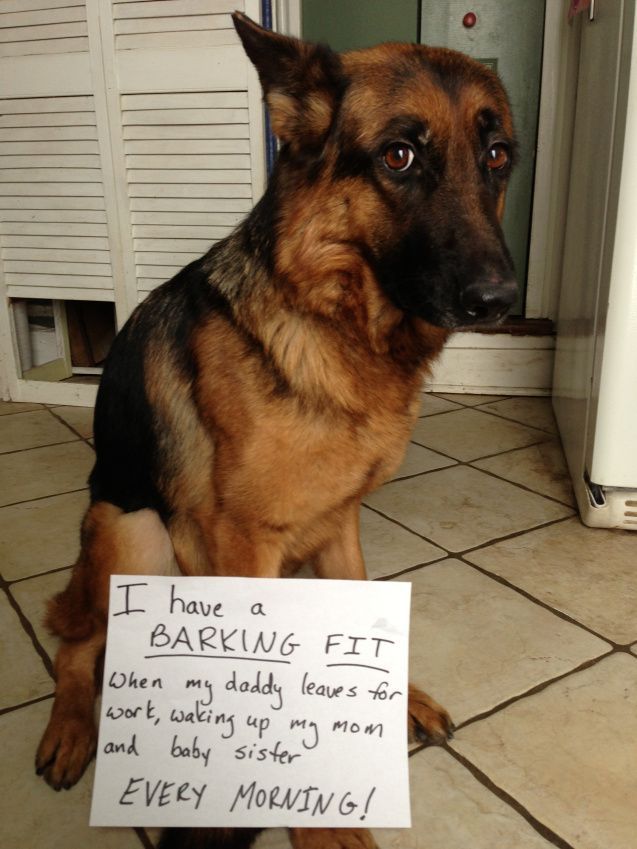 You see, the farm-sourced chicken makes for a tasty meal. And, the wholesome fiber from the natural veggies boosts metabolism and eases digestion.
You see, the farm-sourced chicken makes for a tasty meal. And, the wholesome fiber from the natural veggies boosts metabolism and eases digestion.
The blend has plentiful vitamins and minerals for a shinier coat, strong muscles and bones, and sharper eyesight. And, the DHA promotes brain development. Lastly, the crunchy kibble design makes for removing plaque, bad breath, and chewing for more jaw power.
Pros
- Made from farm-raised chicken
- Contains wholesome fibers for healthy digestion
- Has DHA for cognitive development
Cons
- Inconsistent pricing
- Can cause gas
8. Eagle Pack Power Adult Dry Dog Food
Eagle Pack Power Adult Dry Dog Food, 40-lb bag
$75.72 $79.70
Eagle Pack provides holistic nutrition for adult dogs. It is specifically made for highly active or working dogs. This dog food contains balanced fats, carbohydrates, and protein to help maintain toned muscle, stamina, and healthy weight.
It also contains glucosamine for a healthier joint. This dry dog food contains probiotics for healthier digestion. It supports healthy energy release and sustained endurance in working dogs. It is free from wheat, corn, meat by-products, artificial flavors, colors, and preservatives.
Pros
- Contains high-quality protein
- Free from artificial colors, flavors, and preservatives
- Suitable for working or active dogs
Cons
- Not for dogs with grain allergies
- Small kibble for large dogs
9. Holistic Select Large & Giant Breed Adult
Holistic Select Large & Giant Breed Adult Health Chicken Meal & Oatmeal Recipe Dry Dog Food, 30-lb bag
$74.09 $77.99
Holistic is specifically formulated for large and giant dog breeds. It promotes overall gut health with its probiotic content, which includes metabolism. It is rich in omega-3 fatty acids that promote healthier coats and skin.
This dog food also contains glucosamine for healthier hips and joints. Its taurine content promotes a healthy heart. This dry dog food is highly palatable, high-quality, and rich in digestive enzymes.
Pros
- Specifically formulated for large dog breeds
- Great for highly active dogs
- Promotes healthy skin and coat
Cons
- Kibble size is small for some dogs
- Can cause allergic reactions to some dogs
10. Dr. Gary's Best Breed Holistic German Dry Dog Food
Dr. Gary’s Best Breed Holistic German Dry Dog Food
$56.04 $58.99
Dr. Gary‘s holistic dog food is crafted for German Shepherd dogs. It provides a complete and balanced nutrition for large breed dogs like the GSDs. It is made with real chicken and menhaden fish as the main protein sources.
This dog food is rich in omega-3 and 6 fatty acids for healthier skin and coat. It also contains high-quality fiber that helps maintain gastrointestinal health and functions. Additionally, it contains green-lipped sea mussels from New Zealand to support joint health. Its essential vitamins boosts immunity.
It also contains high-quality fiber that helps maintain gastrointestinal health and functions. Additionally, it contains green-lipped sea mussels from New Zealand to support joint health. Its essential vitamins boosts immunity.
Pros
- Breed-specific diet
- Ideal for dogs with sensitive stomachs
- Free from fillers
Cons
- Kibble size is small
- Some bags have lots of crumbs
11. VICTOR Purpose Nutra Pro Dry Dog Food
VICTOR Purpose Nutra Pro Dry Dog Food
$69.34 $72.99
Another nutritional dog food for GSDs is the Victor Purpose Nutra Pro. It is sourced and made in the USA. It is composed of 92% meat protein from premium quality chicken meat. To help maintain your dog’s proper weight, it contains low carbs and high protein.
This dry dog food is rich in essential vitamins, minerals, and fatty acids. With its unique VPRO blend, your GSD will have a healthier immunity and digestive system. It is also free from gluten that can cause allergic reaction to your dogs.
It is also free from gluten that can cause allergic reaction to your dogs.
Pros
- Suitable for all breeds and sizes
- High in protein
- Supports healthy digestion
Cons
- Can cause allergic reactions to some dogs
- Some dogs released more poop than usual
12. Merrick Grain-Free Large Breed Dry Dog Food Real Chicken & Sweet Potato Recipe
Merrick Grain-Free Large Breed Dry Dog Food Real Chicken & Sweet Potato Recipe, 22-lb bag
$66.48 $69.98
Merrick is a grain-free dry dog food made with real deboned chicken and sweet potato. It is specifically formulated for large breed adult dogs. This nutrient-dense dog food contains 60% protein and healthy fats which helps maintain healthy weight and increased energy.
It also contains 40% produce, vitamins, minerals, fiber, and other organic ingredients. 80% of its protein comes from healthy animal sources which makes it more flavorful for your dog.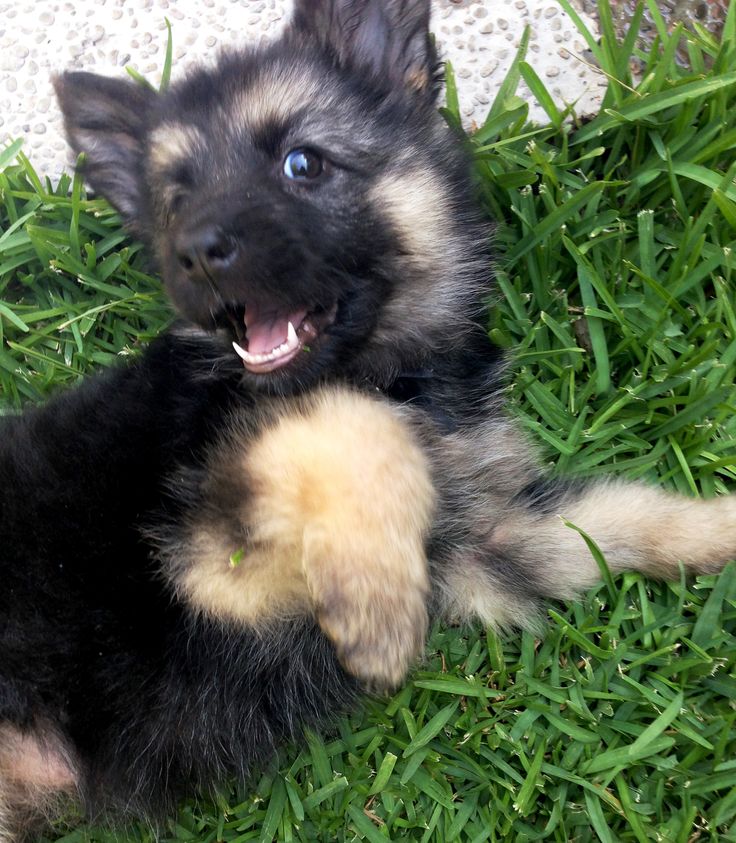 Additionally, it contains chondroitin and glucosamine for healthier joints and hips. Its essential amino acids help maintain shiny and lustrous coat.
Additionally, it contains chondroitin and glucosamine for healthier joints and hips. Its essential amino acids help maintain shiny and lustrous coat.
Pros
- Specifically formulated for large and giant breeds
- Gluten and grain-free
- Provides superior nutrients
Cons
- Small kibble size
- There’s a change in the formula
The Modern German Shepherd
When you think of a German Shepherd, a canine with a wolf-like appearance comes to mind. Most people find German shepherds to be an intimidating breed, fierce in looks and personality. In truth, there are many different types of German Shepherds and make for very faithful companions that love to lead. They are a very zealous and energetic breed. Your German shepherd pup will play, bounce, run and fetch all day long if you will allow it.
It’s a breed of dogs that starts with being a little over one pound. But, by the first year, they can gain weight up to 60 pounds. They are not a breed prone to obesity, either. They are a very active breed of dogs. Besides, GSDs have such a superior aptitude for training and are so intelligent that you will find them performing many different jobs.
They are not a breed prone to obesity, either. They are a very active breed of dogs. Besides, GSDs have such a superior aptitude for training and are so intelligent that you will find them performing many different jobs.
German Shepherds make superb search and rescue dogs. You’ll find them providing disability help as well as working with the police and in military roles.
German Shepherd Puppies' Dietary Needs
Curious, confident, courageous, and vastly cuddly, these canines will gladly risk their lives to save yours. But, German shepherds usually need proper care and attention as they undergo drastic growth in the initial year of their life. Any neglect of nutritional needs results in serious health complications in their adulthood.
To begin with, you have to understand that GSDs are a large breed of dogs. So, it would be best if you gave them a large breed formula. You see, GSDs need extra minerals, vitamins, carbohydrates, and calcium. These nutrients support a healthy joint structure and promote buccal growth and a shiny coat. They also need a higher calorie intake as they tend to burn off the energy quickly. The German shepherd puppy sprouts super fast in the first eight months of their lives. That is when they need you to give them extra TLC.
These nutrients support a healthy joint structure and promote buccal growth and a shiny coat. They also need a higher calorie intake as they tend to burn off the energy quickly. The German shepherd puppy sprouts super fast in the first eight months of their lives. That is when they need you to give them extra TLC.
On average, the GSD puppy requires 500 calories a day. And, by the time the puppy is 15 months, it needs 1600 calories. The protein intake should be around 18% to 22%. Moreover, there should be about 8-12% fat content in the diet to sustain the growth of your doggy.
German Shepherds need proper nutrition.Food for German Shepherd Puppies: FAQ
There is always the possibility that pet guardians have misconceptions about their canine’s diet. Do not fret, as those misgivings will be cleared here.
How many calories does a puppy German Shepherd need?
An intake of 500 calories per day is suitable for German Shepherd puppies.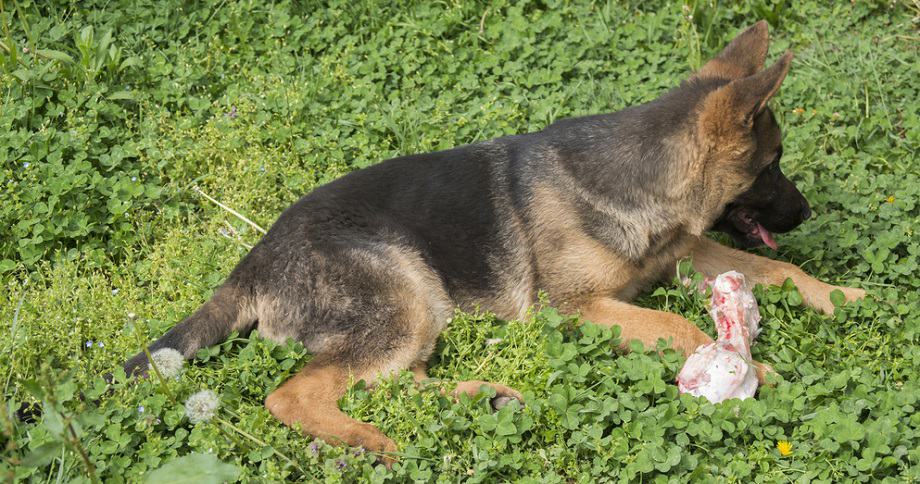 Yet, as the pup grows older, the number of meals is fewer, and the calorie intake increased to 1600 calories around fifteen months of age. Overfeeding your Shepherd can lead to obesity while being underfed can affect its growth – that’s why you should always consult with your local vet about your pet’s nutritional intake.
Yet, as the pup grows older, the number of meals is fewer, and the calorie intake increased to 1600 calories around fifteen months of age. Overfeeding your Shepherd can lead to obesity while being underfed can affect its growth – that’s why you should always consult with your local vet about your pet’s nutritional intake.
How often should you feed my German Shepherd puppy?
Your sweet little fluff ball needs to be fed three to four times a day until four months of age. But, it is a good idea to practice restraint. Overfeeding German Shepherds can lead to indigestion and diarrhea.
And don’t forget to increase your puppy’s calorie intake as it grows older. Remember, your GSD loves to sweat it all off with much-needed physical exertion.
What types of food are good for German Shepherds?
Proteins are a must for German Shepherds. They need it for their joint, muscle, and bone buildup. But, they also have other needs like vitamins and minerals. So, give your doggo choices it will appreciate. Fruits and veggies make wholesome options with plentiful nutrients. Try out apples, bananas, and peaches with the pits. And, give your pupper some broccoli too.
But, they also have other needs like vitamins and minerals. So, give your doggo choices it will appreciate. Fruits and veggies make wholesome options with plentiful nutrients. Try out apples, bananas, and peaches with the pits. And, give your pupper some broccoli too.
Other than that, you can choose between dry dog food, dry kibbles, or wet dog food. It’s a smart choice to go for the healthiest choice in scrumptious flavors that your dog will enjoy eating and stay fit. With the little ones, go for moist options or smaller-sized kibble to avoid choking hazards.
What diseases are German Shepherds prone to?
German Shepherds are susceptible to joint problems. You’ll find that malnutrition in puppyhood can lead to elbow or hip dysplasia in adult dogs. Also, GSDs have specific allergies indicating weaker tummies, so keep that in mind when you pick out their dry food.
Are German Shepherds hypoallergenic?
GSDs are not hypoallergenic.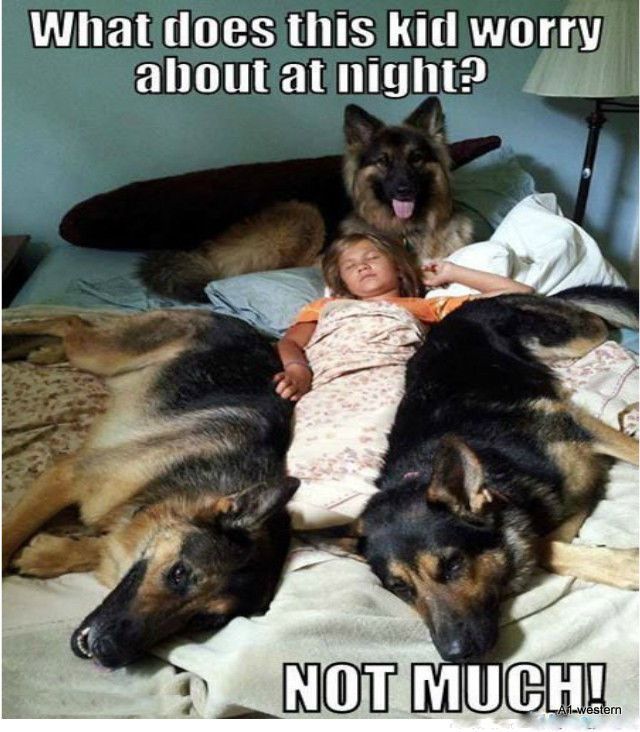 If anything, the double coat of GSDs is prone to quite a lot of shedding. However, the good news is that you can control your pet’s shedding through regular grooming and by taking care of its diet (Omega 3 Fatty acid supplements, etc.). Although you are severely allergic to dog or cat fur, you might have a problem with your German Shepherd pup as the fur will trigger your allergy.
If anything, the double coat of GSDs is prone to quite a lot of shedding. However, the good news is that you can control your pet’s shedding through regular grooming and by taking care of its diet (Omega 3 Fatty acid supplements, etc.). Although you are severely allergic to dog or cat fur, you might have a problem with your German Shepherd pup as the fur will trigger your allergy.
German Shepherd Puppies are as precious as babies and need just as much love and nurturing. So, it is your job as an animal lover or a potential pet parent to give your puppy the attention it deserves. And, never settle for the second-best when it comes to your doggo’s nutrition. Doing so may endanger your pet’s health and can lead to problems in adulthood. Apart from that, we’re sure you’ll do your very best to look after your GSD.
What to feed a German Shepherd puppy
The answer to the question of what to feed a shepherd puppy is quite difficult. It all depends on the conditions of detention, your capabilities and the individual characteristics of the dog. It is one thing to feed in a nursery where several animals are kept at once, it is quite another to draw up a diet for individual rearing.
It is one thing to feed in a nursery where several animals are kept at once, it is quite another to draw up a diet for individual rearing.
Below, we'll tell you what to feed your 1-month-old German Shepherd puppy and elaborate on the dietary changes that need to be made as the animal matures.
How to feed a puppy at different ages
If you are not a shepherd breeder, but an ordinary dog breeder, then the maximum you need is to know how to feed a shepherd puppy at 1 month old. A month is the earliest time at which a puppy can be taken from the kennel, because until this moment the animal is breastfed. Getting all the necessary nutrients from mother's milk. The first complementary foods are introduced at 2.5-3 weeks, after which the proportion of complementary foods in the diet increases.
So, how to feed a shepherd puppy in 1 month:
- At least one third of the diet should be meat. We give preference to low-fat varieties - beef, turkey, chicken.
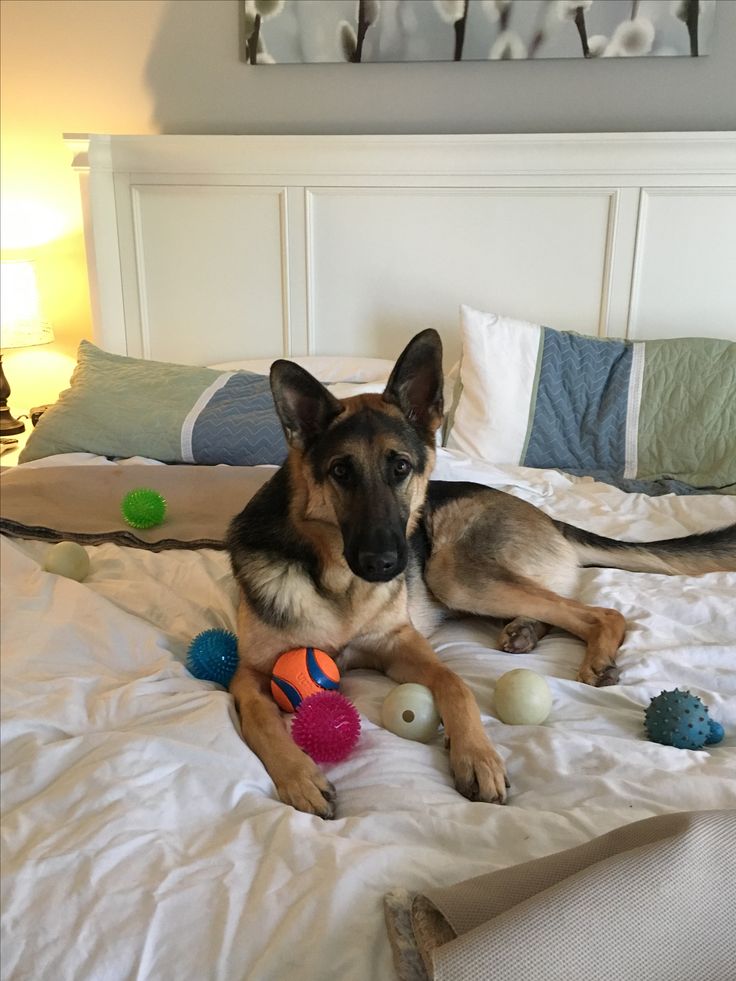 From the age of one month, meat is given in scraped or chopped form, gradually increasing the size of the pieces. Raw meat must be frozen to get rid of parasites, before serving it is poured with boiling water. If there are doubts about safety, it is better to boil beef or chicken.
From the age of one month, meat is given in scraped or chopped form, gradually increasing the size of the pieces. Raw meat must be frozen to get rid of parasites, before serving it is poured with boiling water. If there are doubts about safety, it is better to boil beef or chicken. - Whole milk should not be given to a puppy. It is replaced with low-fat kefir and low-fat cottage cheese. You can cook cottage cheese or yogurt yourself, including calcined ones - so the puppy will get enough calcium to form a strong skeleton.
- Once a week, a one-month-old Shepherd puppy should receive an egg. The protein is boiled and finely chopped, the raw yolk is mixed with cottage cheese or kefir.
- You can supplement the diet with cereals. If you don’t know what to feed a puppy at 1.5 or 2 months old, choose buckwheat or rice. Barley and barley porridge are less useful, it is better to refuse semolina or millet for the time being.
It is advisable to give vegetables to the puppy, starting from 1.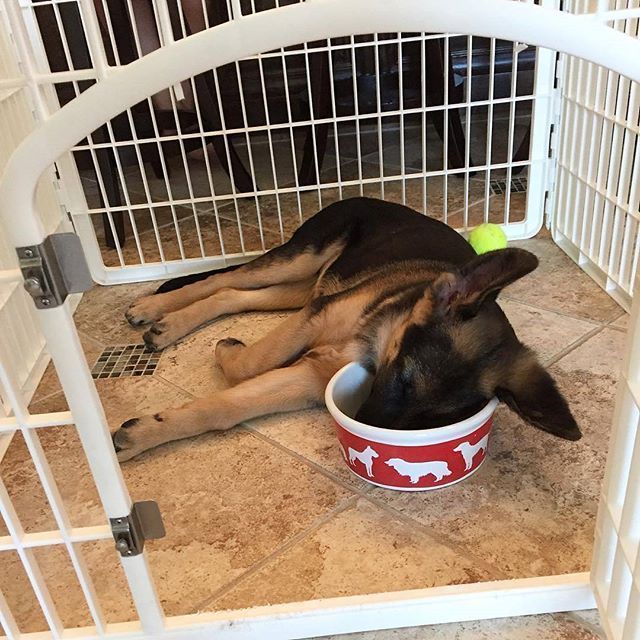 5-2 months. We give preference to carrots and pumpkin, you can add not too sour and not too sweet apples to the diet. From the same age, in addition to the main diet, "sugar bones" are given - this is not food, it is a useful simulator for the jaws and teeth.
5-2 months. We give preference to carrots and pumpkin, you can add not too sour and not too sweet apples to the diet. From the same age, in addition to the main diet, "sugar bones" are given - this is not food, it is a useful simulator for the jaws and teeth.
Teen diet
Figuring out how to feed a puppy at 3 months and at an older age is also easy:
- From about 3-4 months we add boiled offal to the meat (2-3 times a week, as an additional portion).
- Approximately from 3 months you can fish - be sure to cook the river fish and clean it from the bones, give the boneless sea fish raw or scalded with boiling water. Dogs of northern sledding breeds can be given fish earlier, but you need to look at the reaction of the digestive system.
- The number of eggs in the diet is increased to 3 eggs per week.
By about 7-8 months of age, the dog's digestive system is formed, and the puppy can be gradually transferred to an "adult" diet. Naturally, it should contain a sufficient amount of vitamins and nutrients for the growth of the body.
Naturally, it should contain a sufficient amount of vitamins and nutrients for the growth of the body.
What foods should not be given to shepherd puppies
It is not enough to know what to feed a German Shepherd puppy at 1, 2 or 3 months. You also need to keep in mind which products should not be given in any case. We completely exclude from the diet:
- Lamb and fatty pork.
- Tubular bones (especially birds).
- Potato.
- Cabbage.
- Canned corn.
- Any sweets and chocolate.
- Citrus.
It is also not allowed to feed the puppy with the remnants of "human" food - as a rule, it is too salty and too rich in spices even for an adult dog.
An experienced doctor can always help you to correctly compose a diet for your pet, optimally choose the right food and adjust the diet.
What to feed a shepherd puppy, veterinarian advice
How and what to feed a German shepherd puppy
When planning to get a dog, you need to prepare very carefully for this. The future owner must study all the features of the breed, the nuances of care and the optimal diet that must be followed in order for the puppy to grow up healthy and strong. We will talk in detail about how to feed a German Shepherd puppy. For this breed, proper healthy nutrition is the main guarantee of health and well-being.
The future owner must study all the features of the breed, the nuances of care and the optimal diet that must be followed in order for the puppy to grow up healthy and strong. We will talk in detail about how to feed a German Shepherd puppy. For this breed, proper healthy nutrition is the main guarantee of health and well-being.
Puppies are usually picked up by potential owners when they are at least one month old. By this time, breeders feed dogs with raw minced meat or ready-made food that contains all the necessary trace elements. Subsequently, dairy products and cereals are gradually introduced into the diet so that when moving to a new home, the puppy can eat fully and diversified.
The diet of a shepherd puppy at the age of 1 month
From birth to the first month of life, the puppy is trying to introduce the most versatile foods into the diet. Among them must be:
-
Raw and cooked meats;
-
Oatmeal and rice porridge;
-
Dairy products: milk, kefir, cottage cheese.

Shepherd puppies at this age grow very quickly, they have an incredibly fast metabolism, and the stomach is still quite small. Therefore, it is worth giving only those foods that have a high calorie content and are quickly absorbed. The frequency of meals should be at least every three hours. Portion size is quite small. That is, if the puppy eats five times a day, then the total volume of everything eaten should not exceed the content of one glass. Also, a few words should be given to all products, namely how to properly feed a shepherd puppy with each and every one of them.
-
Raw meat. It's about beef. It must be cut into small pieces and given to the dog several times a day. Getting raw meat daily, the puppy will grow as quickly as possible and feel great.
-
Boiled meat. Also no less healthy and nutritious, and also great if you need to fix the chair. Boiled meat should be cut into small pieces, and on the broth in which it was cooked, cook porridge.
 Mix porridge with pieces of meat and give to the puppy. You should know that milk should not be added to such food. It will delay the absorption of useful elements.
Mix porridge with pieces of meat and give to the puppy. You should know that milk should not be added to such food. It will delay the absorption of useful elements. -
Dairy products. These are rice and oatmeal. Also, puppies need to be given cottage cheese, but so that the kids do not choke on a dry product, dilute it with a little kefir or raw yolk.
The diet of a shepherd puppy at the age of 2-3 months
At this age, vegetable fiber can and should be introduced into the diet. It is found in some vegetables, as well as in unrefined oil. That is, starting from the second month, a spoonful of unrefined butter, as well as finely chopped boiled carrots, can be added to the puppy's porridge.
Fresh vegetables and fruits can also be introduced into the diet, but only seasonal, which are as natural and organic as possible. Between main meals, a puppy can be given a piece of watermelon or an apple. In winter, when fresh vegetables and fruits are scarce, it is worth taking care that the dog receives the necessary dose of vitamin D in the form of pharmacy oil. You can also give raw carrots.
You can also give raw carrots.
Also, at this age, many owners give the puppy a large brain bone. The dog plays with it, chews, develops jaws. To avoid an unpleasant smell from such a toy, you can pre-boil it.
About how to feed a shepherd puppy at 2 months, in principle, it is clear. Meals can be reduced up to four times. And the daily volume of food eaten, again, should be the same as the content of one glass.
The diet of a shepherd puppy at the age of 4 months
The kid has already grown up a lot, which means that his diet should be revised. At this age, it is very important to pay attention to the sufficient amount of calcium in the food that the dog eats. At four months, shepherd puppies begin to change their teeth. This can weaken their cartilage so that the ears will not stand up. To avoid this, take care of products containing collagen. Its largest amount is found in ordinary gelatin. Also, you should take care of buying special additives of chondoprotectors, which can be bought at a pharmacy.
As for the basic foodstuffs, almost all of them remain relevant. The only thing that can be added is a cut from a beef head. Such meat is rich in gelatin content. Also, once a day, add a spoonful of gelatin diluted in water to porridge.
Among other pharmacy supplements, you should stock up on potassium. You can buy complex vitamins for puppies of this age, which contain all the necessary elements.
The bone toy must continue to be in the puppy. It will help him get rid of milk teeth faster.
As for the number of meals, they are reduced to three. True, the volume eaten to the contents of two glasses increases. It should be understood that this information on how to feed a German Shepherd puppy at 4 months is generalized and close to ideal. Each puppy is individual, some have a good appetite, others not so much. However, it is worth trying to ensure that each baby adheres to approximately such norms.
Shepherd puppy color correction
By the way, it is during this period that you can take care of adding certain foods to the diet that will correct the puppy's color. The pigment that is responsible for the color of the coat accumulates in the first two years of life. And for the most part, it depends on nutrition whether the dog will be bright red or lighter.
The pigment that is responsible for the color of the coat accumulates in the first two years of life. And for the most part, it depends on nutrition whether the dog will be bright red or lighter.
Raw grated carrots and seaweed can be added to the food to make the coat color bright and saturated. Supplements with natural red beets and turmeric. By the way, the color and saturation of the coat can become for the owner another indicator of whether the dog receives all the substances necessary for healthy development. If something is missing, then the coat will be dull and with a light shade.
Shepherd puppy diet at the age of 5-6 months
When the baby is six months old, the diet is slightly adjusted based on the puppy's gender. For example, males need to exclude milk from the menu.
Everyone, without exception, can begin to introduce by-products in the form of the liver, ventricles. At this age, the puppy eats three times a day, and starting from six months, the size of one serving is about 400 grams. It is necessary to gradually take cottage cheese out of the diet and replace it with meat. The assortment of cereals is also increasing. You can additionally give buckwheat and wheat. Sometimes a puppy can be fed with river fish, but this is very individual.
It is necessary to gradually take cottage cheese out of the diet and replace it with meat. The assortment of cereals is also increasing. You can additionally give buckwheat and wheat. Sometimes a puppy can be fed with river fish, but this is very individual.
You can also feed the puppy:
-
Poultry meat, raw or cooked. Raw be sure to pre-treat with boiling water.
-
Eggs. The protein can be given boiled, and the yolk raw, mixing it with some kind of cereal. However, eggs should be in the diet no more than twice a week.
Diet for German Shepherds under one year old
How to feed a German Shepherd puppy at 6 months and beyond is clear. After six months, the diet practically does not change. Only the volume of one meal increases. Also, it is worth removing the bone with which he previously played from the dog. His teeth are already very strong and he can easily crack it. This is dangerous, because small and sharp pieces from the bone can get into the stomach and cause a lot of problems.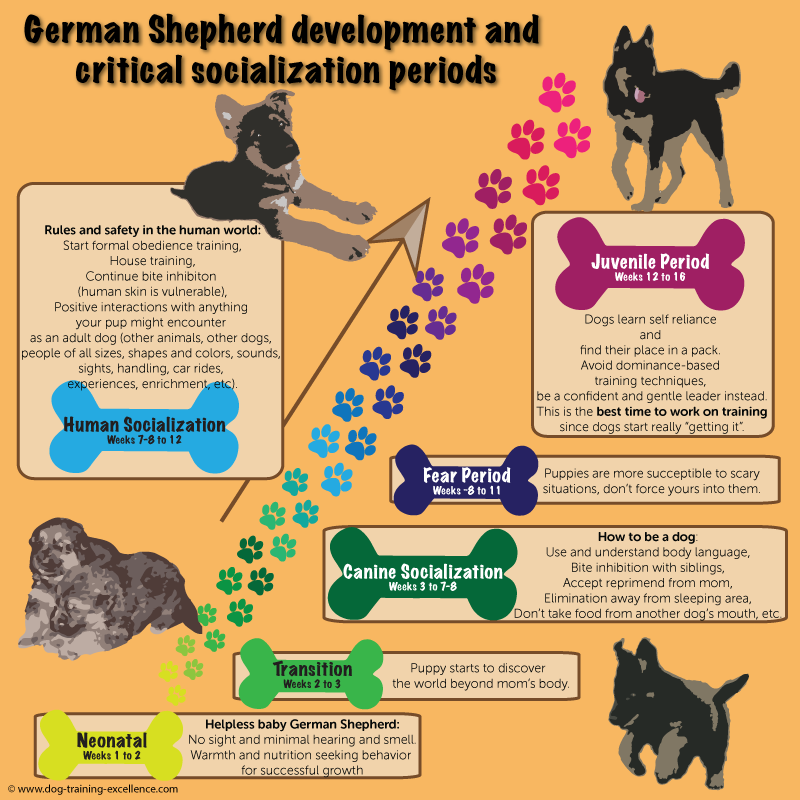
Prohibited foods and general recommendations on how to properly feed a shepherd puppy
In addition to healthy foods, you should also know the list of those that should not be given to puppies. Failure to follow this warning can lead to serious health problems for your dog.
Never give poultry bones, especially chicken bones, to puppies. When offering chicken meat to a dog, make sure that it is well deboned, because the stomach of a young shepherd dog is not able to digest them. As a result, even internal bleeding can occur.
Do not feed tails, vertebrae and chicken necks to your dog. They tend to get stuck between the teeth, cause increased salivation and vomiting.
Some people try to feed their puppies with mashed potatoes, this is forbidden because diarrhea can occur.
Also, every shepherd dog owner should beware of the following:
-
Expired food and stale food;
-
Overdose of vitamins and special mineral supplements.
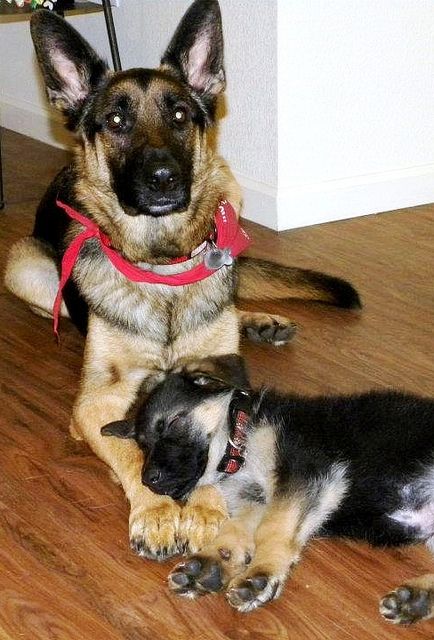 This can lead to gastric volvulus and bone abnormalities;
This can lead to gastric volvulus and bone abnormalities; -
Food with spices. This refers to food that has been prepared for people;
-
Too hot or vice versa cold food directly from the refrigerator;
-
Bad water. Speaking of water, it should be of high quality, the kind that the owner himself drinks. You can give boiled water, but not often, as it does not contain the necessary nutrients. It is impossible for a dog to drink dirty water from a puddle;
-
Sticky overcooked porridges, especially from barley groats.
-
Pork;
-
Smoked products, doubtful sausages;
-
Sweets;
-
It is impossible for one of the acquaintances and friends to feed the dog with unknown products without the knowledge of the owner.
-
And finally, the puppy is not in favor of overfeeding. It should be understood that the dog must receive only the necessary amount of food and nutrients for normal development.
